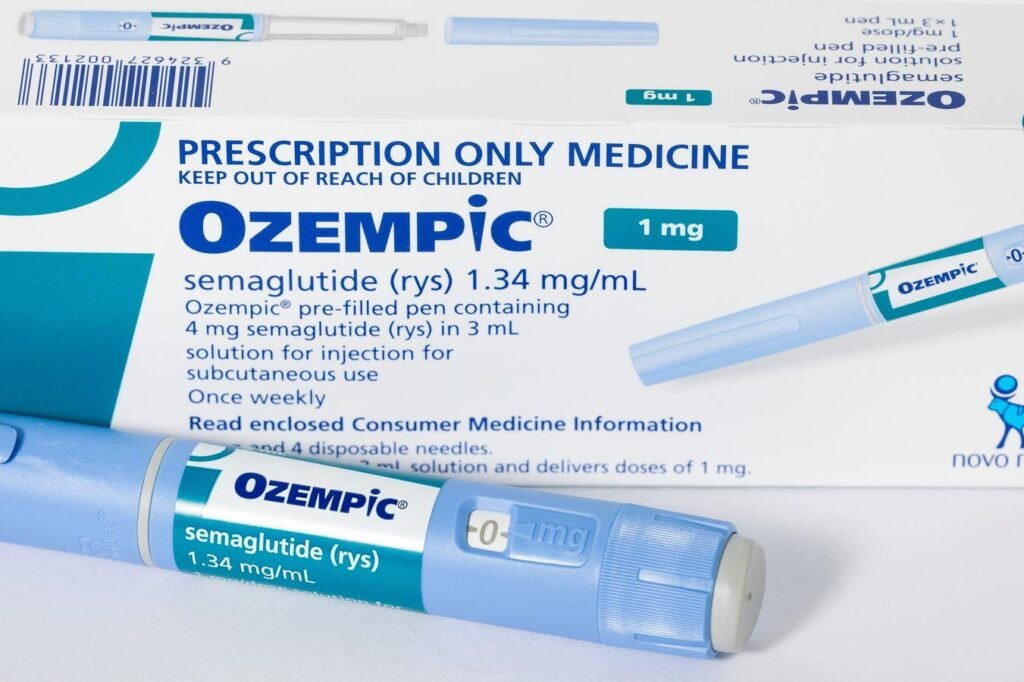Ozempic is a medication for adults with type 2 diabetes that, along with diet and exercise, may improve blood sugar levels and is often used for weight loss as well.
Officials in the U.K. have raised concerns about the potential risks associated with popular weight-loss drugs like Ozempic for individuals undergoing surgery.
These drugs work by slowing the release of food and liquid from the stomach, helping patients feel full for longer periods and aiding in weight loss. However, this mechanism can also increase the risk of a rare surgical complication known as “aspiration,” where stomach contents enter the lungs.
Patients typically fast before surgery to reduce the likelihood of inhaling food or liquid during anesthesia. However, individuals taking certain weight-loss and diabetes medications may still have remnants in their system even after fasting, as highlighted in an alert from the U.K.’s Medicines and Healthcare products Regulatory Agency.
Concerns About Ozempic-Like Drugs and Slow Gastric Emptying
GLP-1 and dual GIP/GLP-1 receptor antagonists, found in medications like semaglutide (Ozempic and Wegovy) and tirzeparide (Zepbound and Mounjaro), can lead to delayed gastric emptying. However, individuals using these drugs may not be fully aware of the additional risks they pose during general anesthesia and deep sedation.
If stomach contents enter the lungs, it can result in serious complications such as aspiration pneumonia, a potentially life-threatening condition that often requires antibiotic treatment.
The MHRA has received reports of a small number of U.K. patients on these medications inhaling stomach contents during surgery, with one case resulting in aspiration pneumonia.
The agency advises patients to inform their healthcare team about their medication use in advance but not to make any changes without medical advice.
Healthcare professionals, including anesthetists, should assess the heightened risk associated with drugs like Ozempic or Zepbound, especially for patients with underlying health conditions that may impact gastric emptying, according to the MHRA.
Is Ozempic Safe for Surgery?
Medical authorities in Europe and the U.S. have issued similar warnings due to the increasing popularity of Ozempic and other weight-loss medications. A recent JAMA Network poll revealed that at least 12% of adults in the U.S. have tried a GLP-1 RA.
Last summer, the European Medicines Agency released guidelines for managing surgical patients on medications like Wegovy, Mounjaro, and Tirzepatide.
Although the EMA did not establish a direct link between these drugs and aspiration, it acknowledged a “biologically plausible risk” based on case reports and literature review.
In 2023, the American Society of Anesthesiologists recommended discontinuing drugs like Ozempic and Trulicity before surgeries.
The FDA, which initiated an investigation into the safety of weight-loss drugs around surgery in January, has taken a more cautious approach. In November, it updated drug labels, including Ozempic, to reflect rare cases of stomach contents entering the lungs.
While there is insufficient evidence to support a recommendation to discontinue these drugs before surgery, patients should inform their healthcare providers about their medication use before any procedures, according to updated labels.
The MHRA does not advocate for a blanket discontinuation of drugs like Ozempic or Mounjaro before surgeries. Instead, it references a recent consensus statement from multiple U.K. anesthetist groups that emphasizes individual risk assessments and risk mitigation strategies for patients on these medications.


